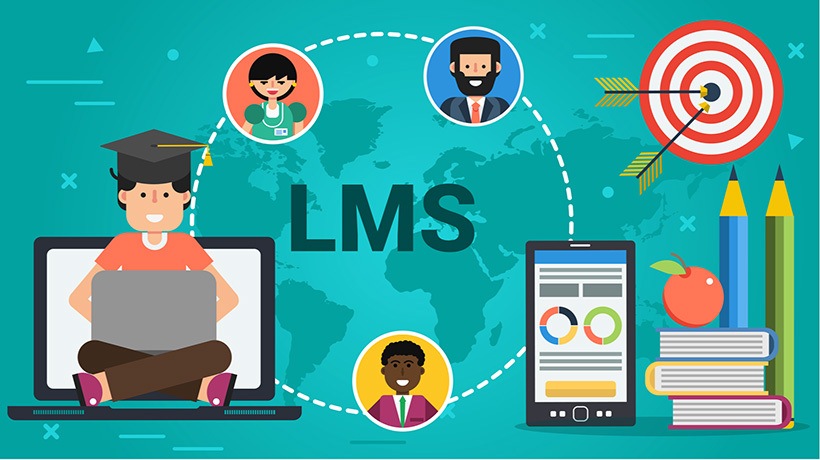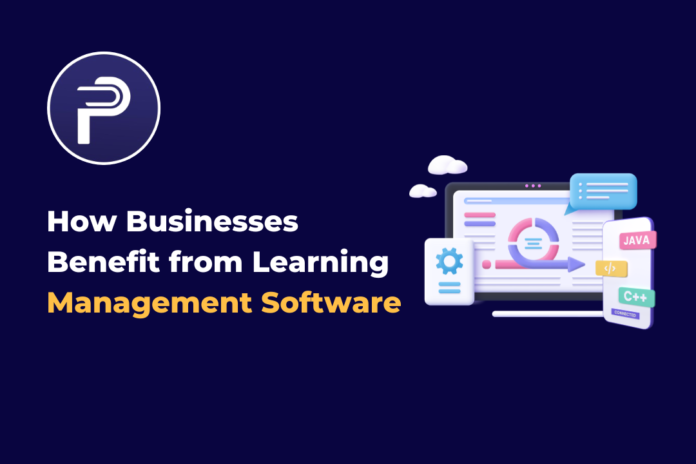Continuous learning is essential for businesses today, helping employees acquire new skills and expand their expertise. By implementing learning management software (LMS), companies can streamline training, administer assessments, and track employee progress. An LMS isn’t just for employees—partners and customers can also benefit from structured learning programs.
In today’s competitive market, HR departments must prioritize workforce development to minimize staff turnover. Additionally, compliance remains a major focus as organizations navigate ever-changing regulations. A robust LMS helps businesses collect, manage, and analyze data for compliance reporting.
What is a Learning Management System (LMS)?
Must Read: What’s Trending in Digital Marketing in 2025?
A learning management system is a digital platform designed to facilitate corporate training. It enables organizations to create, distribute, and monitor educational content, making it easier to manage employee development and certification processes. LMS solutions have become indispensable in modern business training, enhancing e-learning experiences and ensuring consistency across training programs.
10 Benefits of Using an LMS

1. Tailored Learning Experiences
With an LMS, businesses can design training programs that align with their objectives. Whether launching a new product or rolling out company-wide initiatives, an LMS ensures that all employees receive the same information. Training content is structured, centralized, and tailored to employees’ specific roles, improving efficiency and customer service.
2. Boosts Employee Performance and Productivity
An LMS provides employees with instant access to training materials, helping them understand company products and services faster. New hires can quickly familiarize themselves with company processes, while existing employees can refresh their knowledge. This continuous learning approach boosts confidence, efficiency, and overall workplace productivity.
3. On-Demand Access to Training Materials
Once learning materials are uploaded, employees can access them anytime, anywhere. LMS platforms support mobile learning, allowing team members in remote locations to participate in training via smartphones or tablets. This eliminates scheduling conflicts and ensures consistent knowledge-sharing across global teams.
4. Reduces Training Costs
Traditional training methods can be costly due to expenses such as printed materials, venue bookings, and instructor fees. LMS platforms significantly cut these costs by offering digital training solutions. Businesses also save on travel expenses, as employees can complete training remotely without disrupting daily operations.
5. Secure Storage for Training Data
Unlike unsecured online platforms, an LMS protects sensitive company training materials. Administrators can control access levels, ensuring that only authorized personnel can view or modify course content. This added security safeguards proprietary information and maintains confidentiality.
6. Efficient Progress Tracking and Reporting
LMS platforms provide detailed insights into employee training progress. HR and Learning & Development teams can analyze course completion rates, identify challenging topics, and adjust training modules accordingly. These analytics ensure that employees receive relevant, effective training to support business growth.
7. Flexible Learning Environment
A learning management system creates a seamless, adaptable learning experience. Employees can access training at their convenience without technical barriers, ensuring a user-friendly experience. LMS administrators can assign courses based on roles, making learning more personalized and efficient.
8. Empowers Learning & Development Teams
An LMS streamlines the Learning & Development team’s efforts, ensuring consistent and accurate knowledge distribution. Training modules can be updated quickly, saving time and resources while maintaining high-quality education standards across departments.
9. Strengthens Business Relationships
Organizations can use LMS platforms to train partners, associates, and customers. By offering structured learning resources, businesses foster stronger relationships, enhance product adoption, and drive customer loyalty. LMS platforms can also be updated in real time to align with industry trends and market demands.
10. Simplifies Compliance Training
In industries like healthcare and finance, compliance training is essential to meet regulatory requirements. LMS platforms help businesses standardize and track compliance courses, storing training records for audits and inspections. Employees can complete training on critical regulations such as HIPAA and OSHA, ensuring legal and safety compliance.
Conclusion
A learning management system plays a crucial role in modern business operations. It streamlines training, enhances compliance management, and improves overall workforce development. By investing in an LMS, companies can automate training processes, track employee progress, and foster a culture of continuous learning. Ultimately, an effective LMS contributes to higher productivity, increased efficiency, and a stronger bottom line.

